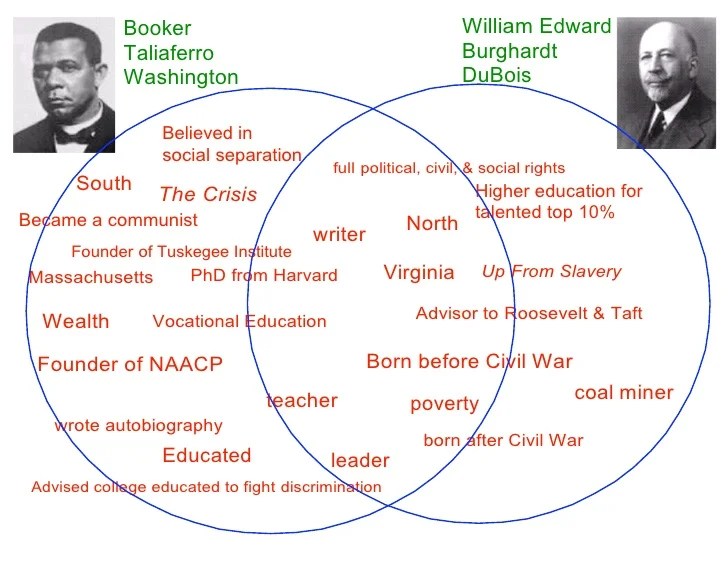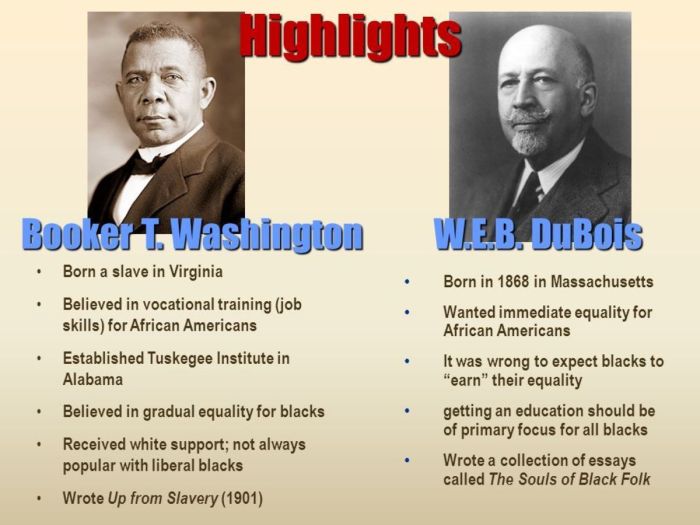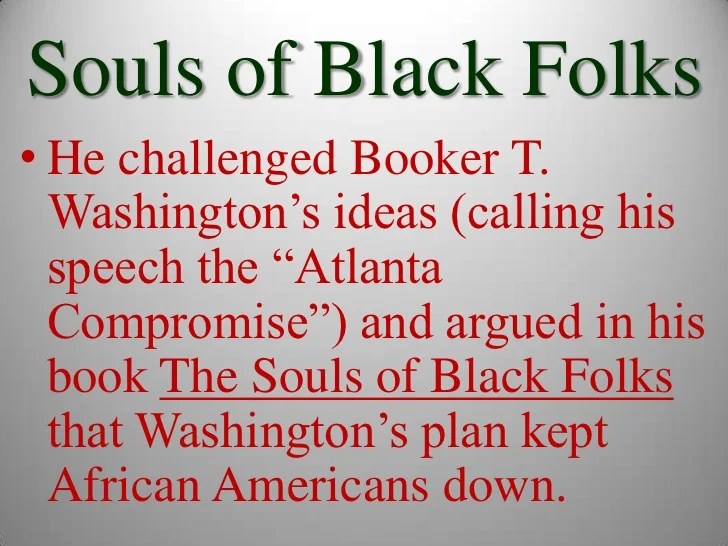Booker t washington and web dubois venn diagram – In the annals of American history, the lives and ideologies of Booker T. Washington and W.E.B. Du Bois stand as towering figures in the struggle for racial equality. Their contrasting educational philosophies, strategies, and legacies have left an enduring mark on the American landscape.
This exploration delves into the similarities and differences between these two titans, shedding light on their profound impact on the civil rights movement and beyond.
Origins and Early Life

Booker T. Washington was born into slavery in 1856 in Virginia. After the Civil War, he attended Hampton Institute, a vocational school for African Americans. W.E.B. Du Bois was born free in 1868 in Massachusetts.
He attended Fisk University and Harvard University, where he earned a doctorate in history.
Washington’s experiences as a slave and his education at Hampton Institute shaped his belief that industrial education was the key to improving the lives of African Americans. Du Bois’s experiences as a free man and his education at Fisk University and Harvard University led him to believe that liberal arts education was the key to empowering African Americans.
Educational Philosophies
Washington founded Tuskegee Institute in 1881, a vocational school that emphasized industrial education. He believed that African Americans needed to learn practical skills in order to be successful in the economy. Du Bois founded Atlanta University in 1897, a liberal arts college that emphasized the study of the humanities and social sciences.
He believed that African Americans needed to be educated in order to be leaders in society.
Political Strategies, Booker t washington and web dubois venn diagram
Washington’s political strategy was based on accommodation and compromise. He believed that African Americans should work within the existing system to achieve their goals. Du Bois’s political strategy was more militant. He believed that African Americans should use civil rights and political activism to fight for their rights.
Collaboration and Conflict
Washington and Du Bois collaborated on a number of projects, including the Niagara Movement. However, they eventually split over their different approaches to achieving racial equality. Washington believed that African Americans should focus on economic development, while Du Bois believed that they should focus on civil rights.
Legacy and Impact
Washington and Du Bois were two of the most important figures in the civil rights movement. Their ideas and activism continue to shape contemporary debates on race and education. Washington’s emphasis on industrial education helped to create a generation of skilled African American workers.
Du Bois’s emphasis on liberal arts education helped to create a generation of African American leaders.
Question & Answer Hub: Booker T Washington And Web Dubois Venn Diagram
What were the key differences between Washington’s and Du Bois’s educational philosophies?
Washington emphasized industrial education, while Du Bois advocated for liberal arts education.
How did Washington’s strategy of accommodation differ from Du Bois’s more militant approach?
Washington believed in gradual progress through compromise, while Du Bois called for more direct action and civil rights activism.
What were the reasons for the eventual split between Washington and Du Bois?
Their differing strategies and personal ambitions led to a gradual estrangement.


